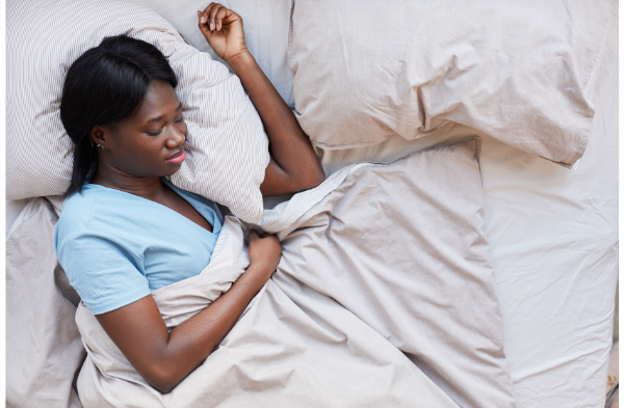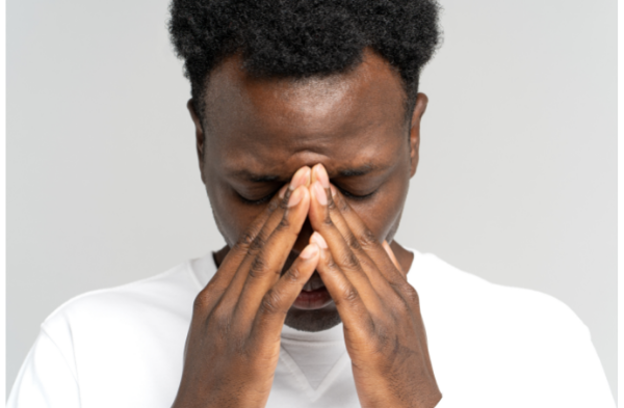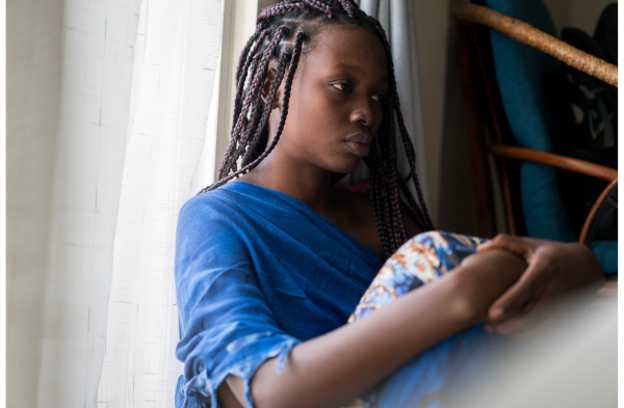Sleep, sexual trauma and recovery
It’s something of a catch-22: Sleep is essential to good health, yet sleep is often reduced after traumatic events like sexual violence.
What can be done to improve the sleep of traumatized people, especially those experiencing sexual trauma and living in low-to-medium income countries with multiple health disparities?
Conducting research is a first step.
Cité Soleil: “Violent” and “Marginalized”
To better assess the relationship between sleep disturbances and non-partner sexual violence (NPSV), a team of academic researchers from around the country, including those from USF’s School of Social Work Interdisciplinary Research Lab (SWIRL), studied men and women post-earthquake in Haiti’s Cité Soleil.

Violence, and in particular sexual violence, affects residents of Cité Soleil disproportionately said the researchers.
It’s a city that’s been characterized as “an understudied urban shantytown … [with the] nation’s most violent and most marginalized neighborhood.”
It’s been estimated that 50 percent of the residents of Cité Soleil have experienced NPSV versus the 7.68 percent in Haiti in general. Despite that grim statistic, the authors are quick to note that most Cité Soleil residents are law-abiding and hard-working.
The research team partnered with Haiti’s OREZON Cité Soleil (Organization for the Renovation and Education of the Cité Soleil Zone) to conduct the work.
The study, “Self-reported sleep disturbance patterns in urban Haitians: A latent class analysis,”
has several co-authors, including SWIRL Director Dr. Guitele Rahill and Swirl Associate Director Dr. Manisha Joshi, both with USF’s College of Behavioral and Community Sciences (CBCS), School of Social Work and Dr. Abraham Salinas-Miranda, USF College of Public Health associate professor and director of public health initiatives for SWIRL. Salinas-Miranda is also the director of the Harrell Center.
Other authors include the CBCS’ Dr. Kerry Littlewood, New York University’s Dr. Judite Blanc and Florida International’s Dr. Christopher Rice. The research was published in the International Journal of Mental Health in February.
Violence and Sleep Disturbances
The researchers studied not only sleep disturbance among men and women who live in violent Cité Soleil, but they also examined the relationship between NPSV and sleep disturbances. Thirdly, they modeled associations of NPSV experience and sleep disturbance risk factors separately for men and women.

“This study has several unique contributions,” Dr. Rahill said. “The first is in its intentional focus on an understudied community and population whose race, ethnicity and socioeconomic status have rendered it nearly invisible with respect to health research. Our findings indicate that women and men in Cité Soleil are at great risk for suboptimal sleep patterns. In engaging and involving Cité Soleil residents in this study, we respond to an ethical imperative that sleep health and trauma interventions are a moral obligation, a human right and an issue of social justice for individuals worldwide, regardless of their race, ethnicity, country of residence or socioeconomic status.”
The study involved over 500 men and women, most in their late 20s, from Cité Soleil. Interestingly, the researchers found that more men than women in Cité Soleil reported NPSV, although female victims of NPSV reported more sleep disturbances than male victims.
“The data were obtained through an anonymous survey, which made it easier for men to report having been victims in a setting where non-heteronormative sexual activity is stigmatized and illegal,” Dr. Joshi explained. “But, although more men [31.7 percent] reported experiencing NPSV, women who reported NPSV [22.9 percent] were more likely to report disrupted sleep. Women who reported more frequent sleep disruption were also more likely to report suicidal ideation.”

Other findings:
- Overall, 58 percent of the Haitians studied experienced insomnia (nearly two times the 30 percent reported in the U.S.) and 40 percent restless sleep (more than five times the 7.7 percent prevalence reported outside of Haiti).
- Sleep disturbance score for NPSV victims was significantly higher than that for non-victims.
- Women and men who reported a higher level of suicide intentions and poorer physical health had increased odds of often having sleep disturbances.
- Women who reported often having sleep disturbances were also more likely to be depressed (although this was not found in men with frequent sleep disturbances).
Sleep Health and Quality of Life
“Sleep health is critical to overall health and quality of life,” noted Dr. Salinas-Miranda. “Yet the amount of sleep is often reduced after traumatic experiences, thus affecting overall sleep health. We encourage physicians, clinicians, public health advocates and policymakers in global and humanitarian settings to accentuate sleep health and NPSV prevention in disaster- preparedness programs, and to incorporate sleep-health promotion activities in interventions implemented after large-scale traumatic events. Even with limited access to medical professionals, sleep-health awareness and health-promotion activities can empower Cité Soleil residents to take charge of their sleep health and improve their overall health and quality of life.”
Story by Donna Campisano, USF College of Public Health
